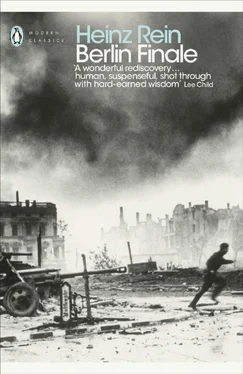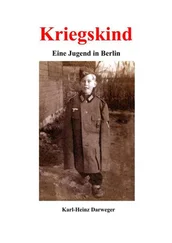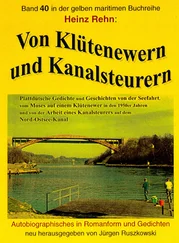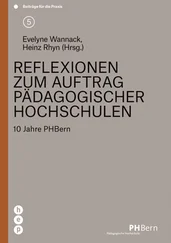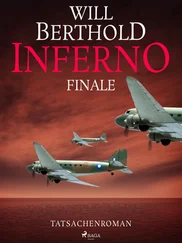Heinz Rein - Berlin Finale
Здесь есть возможность читать онлайн «Heinz Rein - Berlin Finale» весь текст электронной книги совершенно бесплатно (целиком полную версию без сокращений). В некоторых случаях можно слушать аудио, скачать через торрент в формате fb2 и присутствует краткое содержание. Город: London, Год выпуска: 2019, ISBN: 2019, Издательство: Penguin Books, Жанр: Историческая проза, prose_military, на английском языке. Описание произведения, (предисловие) а так же отзывы посетителей доступны на портале библиотеки ЛибКат.
- Название:Berlin Finale
- Автор:
- Издательство:Penguin Books
- Жанр:
- Год:2019
- Город:London
- ISBN:978-0-241-24566-8
- Рейтинг книги:4 / 5. Голосов: 1
-
Избранное:Добавить в избранное
- Отзывы:
-
Ваша оценка:
- 80
- 1
- 2
- 3
- 4
- 5
Berlin Finale: краткое содержание, описание и аннотация
Предлагаем к чтению аннотацию, описание, краткое содержание или предисловие (зависит от того, что написал сам автор книги «Berlin Finale»). Если вы не нашли необходимую информацию о книге — напишите в комментариях, мы постараемся отыскать её.
April 1945, the last days of the Nazi regime. While bombs are falling on Berlin, the Gestapo still search for traitors, resistance fighters and deserters. People mistrust each other more than ever. In the midst of chaos, a disparate group – a disillusioned young soldier; a trade unionist and saboteur; a doctor helping refugees – continues to fight back. And in Oskar Klose’s pub, the resistance plan their next move, hunted at every step by the SS.
Published in the immediate aftermath of the Second World War, Berlin Finale is an unforgettable portrait of life in a city devastated by war.
Berlin Finale — читать онлайн бесплатно полную книгу (весь текст) целиком
Ниже представлен текст книги, разбитый по страницам. Система сохранения места последней прочитанной страницы, позволяет с удобством читать онлайн бесплатно книгу «Berlin Finale», без необходимости каждый раз заново искать на чём Вы остановились. Поставьте закладку, и сможете в любой момент перейти на страницу, на которой закончили чтение.
Интервал:
Закладка:
In this cellar there are only two people watching everything that is happening with stoic calm, Mrs Buschkamp and Joachim Lassehn. However, the source of this calm is quite different in each of them, because while in Mrs Buschkamp’s case its cause lies in natural fearlessness, for Lassehn it is complete apathy.
At first the two cellars are still dominated by the nervous activity that usually comes in the first few minutes after an alarm. They are filled by people taking their seats, by the residents of the building greeting one another, storing away their luggage, closing the ventilation flaps. Then suspicions about the supposed destination of the enemy formation are exchanged; the important thing being to know from which direction the squadron is coming, but it is all done almost automatically, with the mechanical routine of a procedure carried out a hundred times.
But when that activity is over, a weird quiet starts to spread, all senses wither except the sense of hearing, only the ear still lives. No one is aware of the mouldy, fungous smell of the cellar, no one feels the cold rising from the stone floor, no one sees the tense, distorted faces in the cold light of the bare bulbs. A suffocating silence presses people’s throats together. In the silent stillness the heavy breathing is the only sound. Everyone is listening as hearts race in faster and faster bursts and hands flutter to the sounds that trickle down into the cellar from the world above, and even though the cellar is below street level and has no windows, the iron doors of the gas locks and the air flaps are firmly shut. The fine, even song of the four-propeller planes, the roar of the anti-aircraft guns can still be heard, and the unpleasant hissing, wailing and shrieking of the plunging bombs, and even though after four years of war from the air it is general knowledge that the bombs that can be heard falling have already done their destructive work, because the bombs are faster than the sound produced by their air suction, they all hunch their shoulders, the blood seems to freeze in their veins, their fingernails dig deep into the balls of their hands, the tension in the mind has reached a level that almost sends it plummeting into abject submissiveness. As if etched by an invisible stylus, lines of horror are drawn on faces. A deafening crash rends the air. The cellar begins to shake in waves, as if in an earthquake, a dragging feeling penetrates the bodies from below. A terrible shock wave drives the air in a swift blast through the closed doors and hammers against eardrums, roof tiles rattle onto the cobbles, windowpanes shatter, bursting stones splinter, the house’s joints seem to creak, the bulbs flutter, their light becomes fainter, at last only the filaments are glowing. They recover, go out, some women scream shrilly, children begin to cry, another one whimpers quietly, an old woman kneels by her bench and prays loudly: ‘Our Father, who art in Heaven!’. One of the few men shouts in a voice that is loud but no longer firm, ‘Shut up! Shut up!’. And again and again come hissing sounds, vibrations, shock waves, impact, and then all of a sudden it is over as it began. The first waves of the attacking unit have flown over the district. The lights flicker on again, then the place is bathed in primal brightness. The women sob a few more times and blow their noses violently, then they look at each other, and in their eyes, alongside distraction, there is a sense of wonder that death has only touched them, only brushed them with its icy breath, but still left them alive.
Lassehn is unmoved by all of this, none of it has reached him, not the danger, not the release from the anger, not the screams of the women or the demand for silence. He sits in a niche built into the wall, his feet are stretched out in front of him, and his head is lowered so that his chin is touching his chest.
He tries to order the thoughts that have crashed in on him, but it is a difficult thing to do, because they have rolled up into a solid ball that is not easy to disentangle. He can’t find the beginning, so he forces his thoughts away from the present and the immediate future, and pushes open the door to memory. At first it’s only a tiny crack, but soon it’s gaping wide, when the flow of thoughts strikes against it. Much that seemed indistinct, incomprehensible and mysterious at the time, which crouched over experiences like a shadow, perceptible and yet intangible, today becomes crystal-clear and hurts with manifest ruthlessness.
The images glide constantly past, they are not equally sharp, some have already faded, some seem unlit, but many stand out clearly against the dark background. This dark background was the mood of Joachim Lassehn, back on leave, born of the despair of having to waste the best years of his life to no good end. This despair was not only the consequence of the demoralizing battles at Voronezh and Orel, it had already begun when he had to turn up for labour service, when they tried to grind all individuality into a particular form, to suppress any independent thought, to direct mind and body entirely towards the military goal. Lassehn was not repelled so much by the strains of work and the monotony of the training as by the suppression of every unregulated impulse; and what labour service had begun with the pretext of toughening-up and social levelling had been continued by the military. The perpetuation of these phrases was no longer considered necessary, here they marched directly towards their goal of physically toughening the young man and intellectually making him a submissive tool, before leading him as quickly as possible onto the battlefield.
In Norway Lassehn found himself transferred to a hostile environment, admittedly no shots were fired and there was no combat, because the underground resistance of the Norwegians was a matter for the Gestapo and their quislings, but even though he belonged to the winning army, in fact Lassehn was the humiliated one. It was unbearable to look into the proud, unfriendly faces of the Norwegians, to see them ostentatiously getting up straight away and leaving the coffee house as soon as a German soldier crossed the threshold, or the seat next to him remaining empty on a crowded tram. He was ashamed of his superiority and constantly amazed at how naturally his comrades felt that wearing the light-grey uniform with epaulettes and insignia made them feel superior. He despised the uniform that he had to wear because it was a target for hatred and contempt. He couldn’t walk through the streets with the imperious stride of the conqueror, defiantly looking at the faces of the conquered people. He did not understand his comrades, who could swim calmly in this sea of hostility, and even feel good. The fact that Norway was not at the front line far outweighed all the manifestations of ill will, if they were perceived at all.
Then came the deployment of the regiment on the eastern front. Even though Lassehn abhorred the combat that would now replace the surveillance of an oppressed people, the battle ahead of him felt initially like a liberation. Yet the feeling of relief was short-lived, because the eastern front too had a hinterland with a hostile population. To his horror Lassehn was forced to acknowledge that war did not only consist in fighting against a hostile army, but that the very meaning of that war seemed not to be to bring peace to the country beyond the front, but rather to fertilize it with the blood and corpses of the remaining population – those who were not deported, as war booty, to be used as slave labour – preparing the ground for the benefit of the settlers of the colonial eastern territories who would arrive in due course. He could not shake off the experiences he was forced to go through and then turn to more cheerful matters. What little inclination he possessed to accept life and hope for the future had been sucked away by the war. When he became aware of this, he seriously considered suicide, but at that point he was allowed to go on leave. Leave meant not only getting away from orders and commands for a few weeks, shedding the crusty scab of blood and filth and allowing the pores of his skin to open by breathing air that was not thick with the smell of corpses. Leave also meant being lifted out of the communal life of the trenches and being able to follow a rhythm of his own once more. He found Berlin changed, the officially endorsed flight after the destruction of Hamburg had put the city in a wildly feverish state, and the first three major British night raids had fallen upon it like infernal storms. When Lassehn had left the Lichterfeld tram at Lankwitz Station, he walked along Leonorenstrasse with a sense that things wouldn’t be all that bad. But when he reached the junction with Kaiser-Wilhelm-Strasse he had stopped, bewildered, because he was suddenly in the middle of a dead city in which all traces of life had collapsed into piles of rubble. Then he had walked on in a daze, automatically putting one foot down after another, his boots had crunched on shards of glass, his feet had stumbled over heaps of rubble, they had directed him past Lankwitz Church into Gallwitzstrasse across Havensteinplatz to Seydlitzstrasse, and death and destruction had constantly intruded upon him. He had looked right and left, and from the blackened ruins the images of the incinerated past had risen, the sedate, bourgeois life, assembled from opaque respectability and untroubled comfort, snobbish superiority and the inferiority of the parvenu. It had all been there: the advertising columns with their enticing promises, the thé dansant and the Philharmonic Orchestra, the midsummer ball and the heavyweight championship, shops with brightly coloured enamel signs, Spratt’s dog biscuits and Juno cigarettes, Fromm’s rubber goods and Chlorodent toothpaste, telephone kiosks with stylized receivers and signs saying ‘Keep your conversation short’, green meadows and urban trees, lindens, chestnuts, acacias, and flats, flats, flats in long new buildings, two, two and a half, three, four rooms, self-contained, with stove, and central heating, hot running water and Junkers gas boilers, rubbish chutes and communal aerials, with old-fashioned and modernist furniture, with pictures of the Führer in dining rooms and pictures of dancing fairies above the beds, with bookshelves, Goethe, Schiller, Lessing, Ulhand, Mein Kampf , The Myth of the Twentieth Century , Via Mala , The Wiskottens , Debit and Credit , and flags, flags, flags, red with a white circle and the black swastika inside, from the little pennant between the double windows to the metre-long household flag from the skylight. It seemed entirely logical to Lassehn that that he couldn’t find his parents, that the block of flats on Seyditzstrasse had burned down and his parents had suffocated in the cellar with many others and their bodies dumped in Baumschulenweg with countless others. Lassehn had stood completely cold, inert and emotionless by the long, uniform rows of graves, hardly bigger than molehills.
Читать дальшеИнтервал:
Закладка:
Похожие книги на «Berlin Finale»
Представляем Вашему вниманию похожие книги на «Berlin Finale» списком для выбора. Мы отобрали схожую по названию и смыслу литературу в надежде предоставить читателям больше вариантов отыскать новые, интересные, ещё непрочитанные произведения.
Обсуждение, отзывы о книге «Berlin Finale» и просто собственные мнения читателей. Оставьте ваши комментарии, напишите, что Вы думаете о произведении, его смысле или главных героях. Укажите что конкретно понравилось, а что нет, и почему Вы так считаете.
